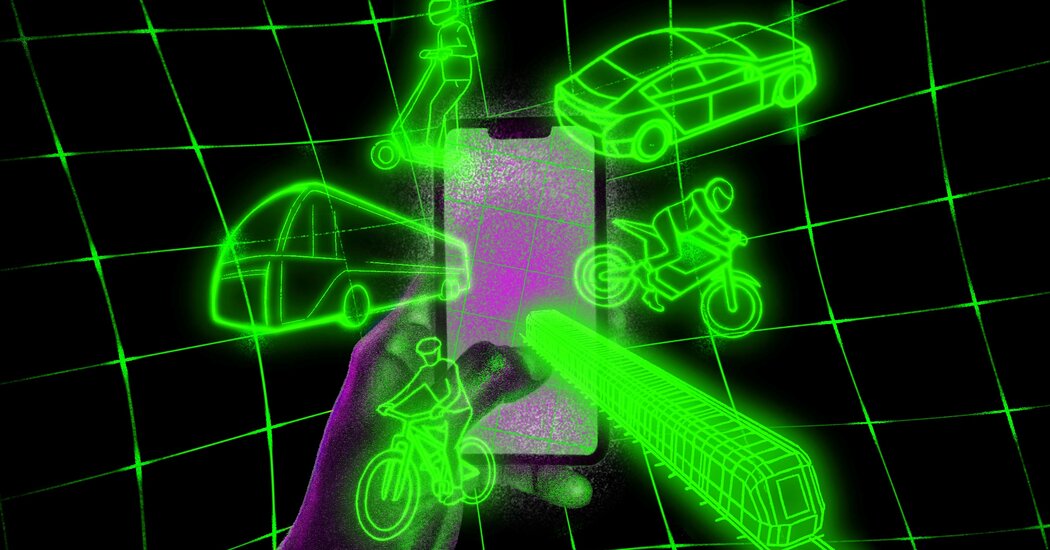
Pittsburgh has created 50 “mobility hubs,” in-person locations where all the modes can be found; residents can jet off on a Spin or Scoobi from there. The city is also piloting “universal basic mobility,” where 50 low-income residents are being given “all you can eat” access, as Ms. Ricks described it, to public transit, bike-sharing and e-scooters. Discounts for e-mopeds, car shares and car-pooling are also included.
“If people don’t need to worry about the cost of those individual services, or frankly of transportation itself — if they can remain focused on trying to reliably get to work, doctor appointments or get their kids to school on time, and they don’t have to be price sensitive — do we get better social outcomes from that?” asked Ms. Ricks.
The question also harkens back to the original dilemma: Can MaaS lure people out of their cars?
So far, the evidence of a modal shift appears shaky. In Finland, Whim and other operators never amassed a huge following, and the pandemic reportedly battered finances. The last year and a half has not been a banner time for travel routines. And 2022 may not be either.
But compared to the car, a century-old invention, the concept of one-stop-shop transit is brand-new, Mr. Hietanen said; growing pains are only natural. “The one that creates dreams is going to win this,” he added. “And we can create dreams. We’ll just do it in a bit of different format.”
Time, then, to get creative. Can car-free transportation be bundled in other ways? There is at least one place in the United States that is making a strong attempt.
In September, Culdesac Tempe, a 17-acre development outside Phoenix that calls itself “the first car-free neighborhood built from scratch in the U.S.,” announced that residents moving in next year would have access to a mobility package that includes a Platinum Pass with Valley Metro, the local transit agency, with unlimited free rides on streetcars, buses and the light rail; free use of over 100 Bird e-scooters; and discounts on Lyft rides and Envoy electric car rentals. (There are also over 1,000 bike parking spots.) It is all included in the rent.
Developers, said Lava Sunder, Culdesac Tempe’s general manager, have a long history of intermingling with transit, from building out streetcar lines to offering free parking. Theirs is just a new take on tradition.
“We’ve been hearing from residents that they have different mobility preferences,” Ms. Sunder said. “There isn’t a one-size-fits-all for mobility.”




